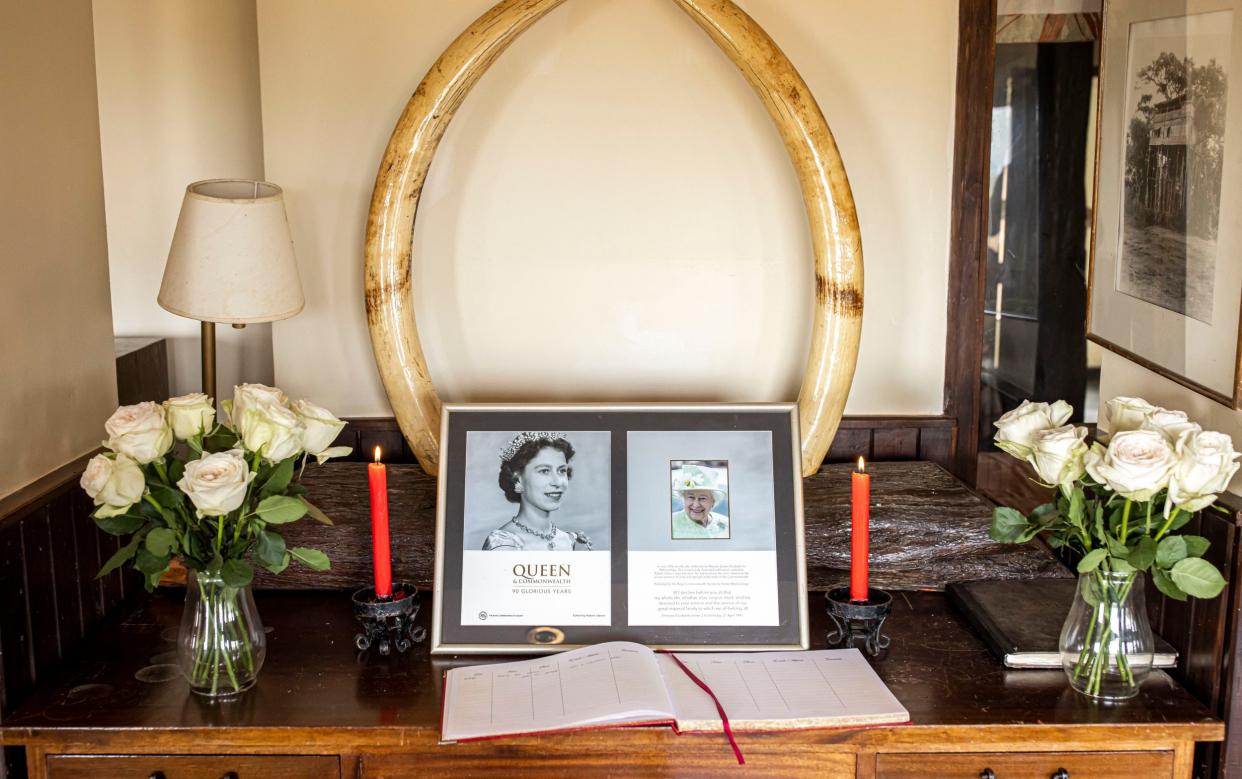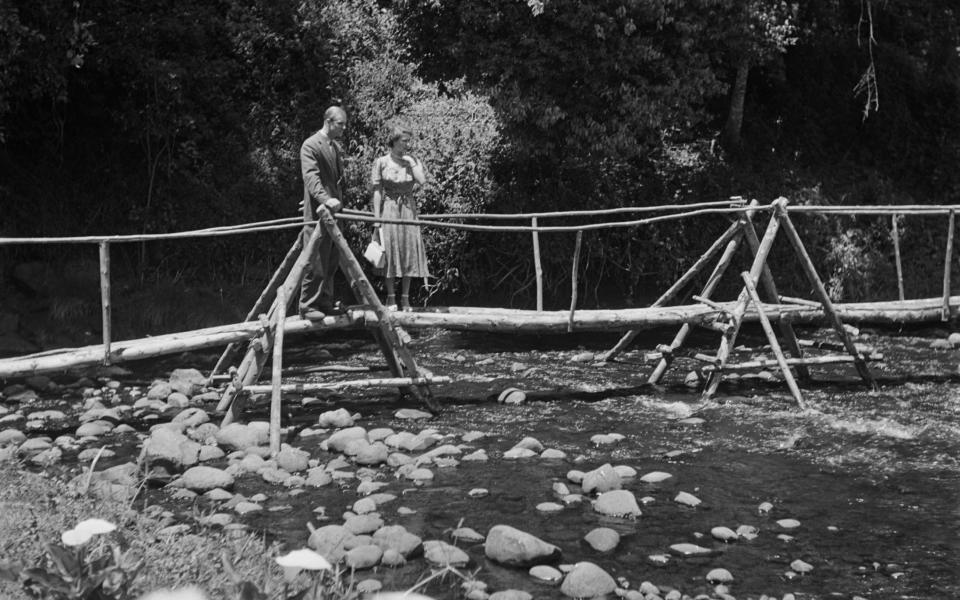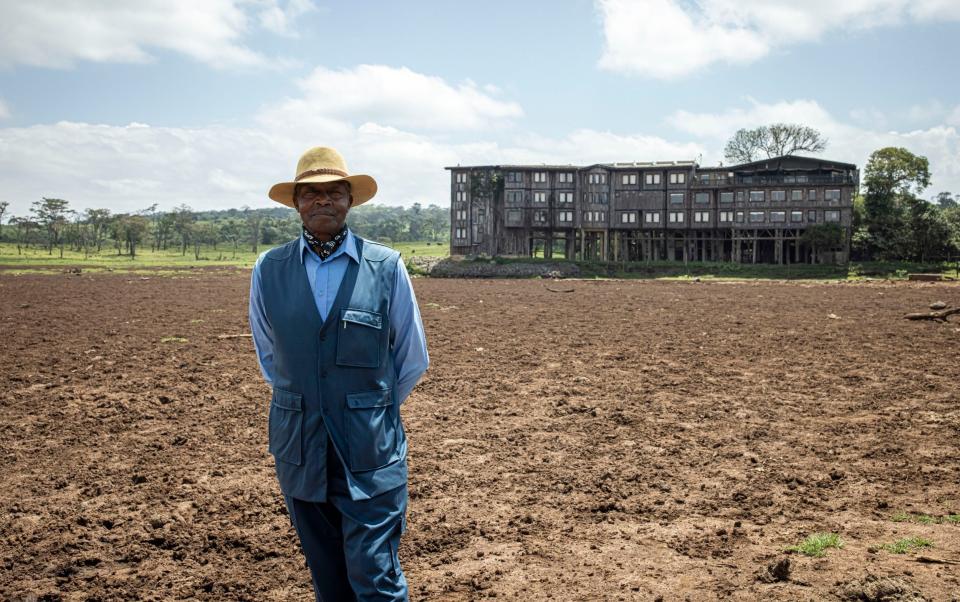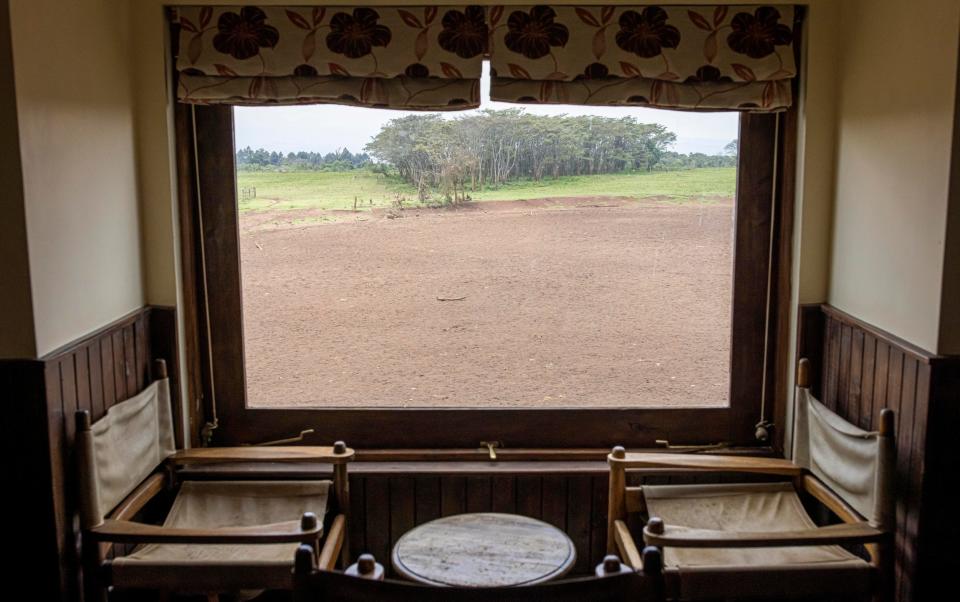Kenyan safari lodge where Elizabeth II became Queen hosts tributes to the late monarch

Since closing during the pandemic, nature has slowly started to reclaim the old, dilapidated Treetops Hotel in Kenya, where a 25-year-old Princess went up an ancient African fig tree and came down as a Queen.
But the moment the news of Queen Elizabeth II's death broke, former staff returned to the site to place white roses, light candles and lay out a condolence book in her honour.
"Thank you, Ma'am, rest in peace," read the only entry so far when The Telegraph visited, apparently added by a British army captain based near the remote site.
“The Queen was like a mother to me,” said Amos Ndegwa, a former bush ranger who came to pay his respects. The 68-year-old's grandfather helped build the hotel and his father cooked a six-course meal for the Princess. “All the jobs I’ve had were because of her coming to Treetops.”
In Feb 1952, the young Princess Elizabeth was touring the Commonwealth. She stayed at the Treetops Hotel, then a three-bedroom cabin in colonial Kenya built in an ancient fig tree overlooking a watering hole, with her new husband, the Duke of Edinburgh.


She filmed black rhinos, warthogs and a herd of elephants on her small handheld movie camera, then climbed a rickety step ladder to bed.
"She said she was very happy here," says Mr Ndegwa. "She made jokes and smiled about how fresh and tasty the local ingredients were."
British colonial authorities were brutally putting down the Mau Mau Uprising at the time, and tensions were high. Some feared that the Princess could have been a target, so security was tight.
Jim Corbett, the naturalist and big-game hunter, accompanied the couple on their trip and spent much of the night outside the lodge with a shotgun, looking out for leopards. At the same time, local men with spears were positioned around the grounds.
The next morning she was told that her father, King George VI, had died in England during the night and that she was now Queen.
"A young girl climbed into a tree one day a Princess … she climbed down from the tree next day a Queen," Mr Corbett later wrote in the visitor's book.
In 1954, the original treehouse was attacked by Mau Mau rebels, who burned it to the ground in a highly symbolic attack on a symbol of British colonialism.
The only thing that survived was a metal plaque announcing to all that "In this Mgumu tree her Royal Highness the Princess Elizabeth and His Royal Highness the Duke of Edinburgh spent the night of February 5 1952. While here Princess Elizabeth succeeded to the throne through the death of her father King George VI."


A few years later, a much grander hotel was built on the other side of the watering hole, capable of housing about 72 guests. Queen Elizabeth II returned there in 1982. Her suite surveyed much of the park and Mount Kenya off in the distance and could be rented until recently for £180 a night.
But these days, the oldest Safari lodge in the country is a forlorn sight. It has been closed since the pandemic struck. Its main visitors are now fearsome herds of buffalo, baboons and the occasional elephant.
The old watering holes are dry because of bad rains and the old staff have been left without jobs.
Julia Kirigo, who used to work for the hotel, took a walk through the grounds before placing flowers by a wooden hotel sign.
"Nature is taking her back," she said.


